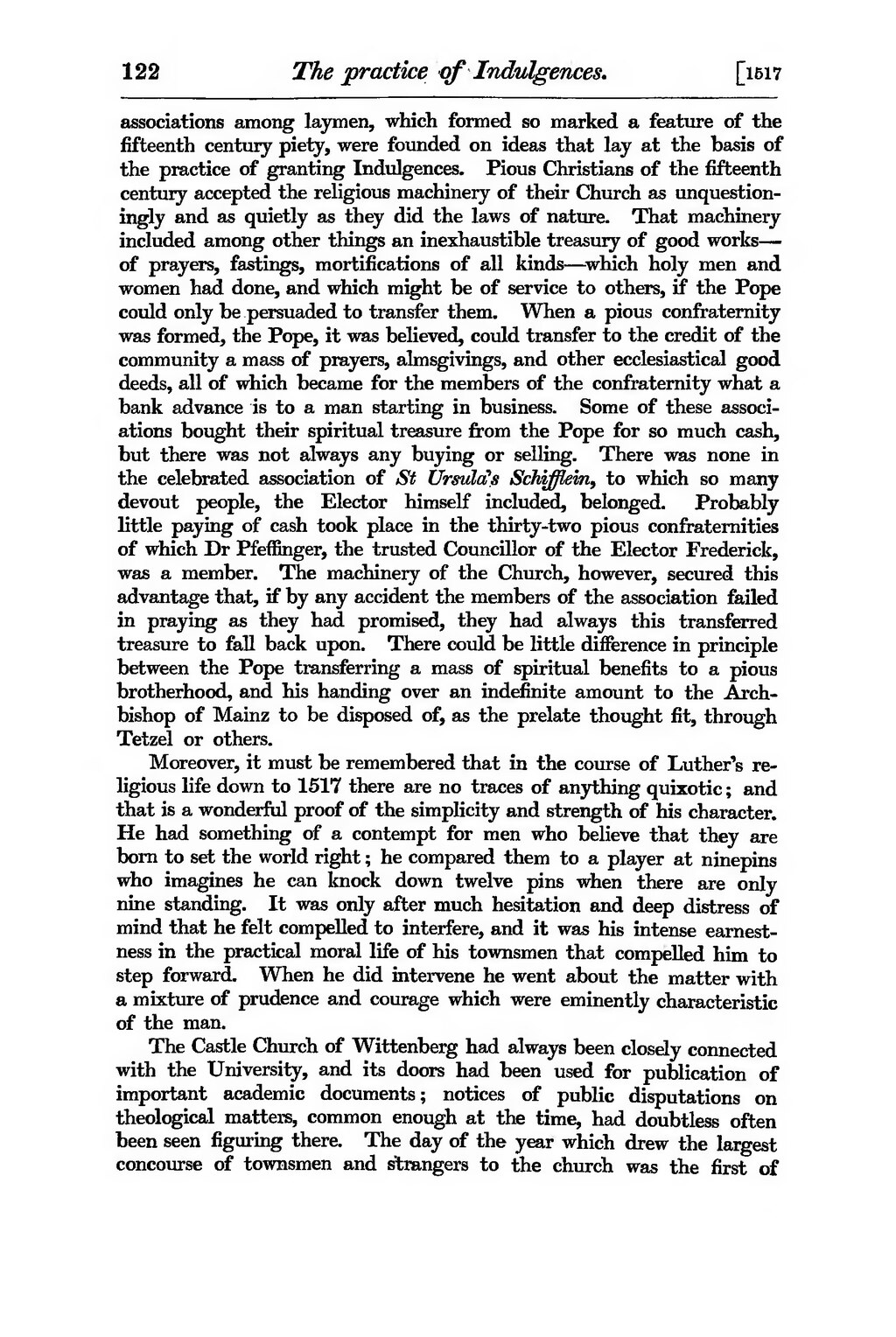associations among laymen, which formed so marked a feature of the fifteenth century piety, were founded on ideas that lay at the basis of the practice of granting Indulgences. Pious Christians of the fifteenth century accepted the religious machinery of their Church as unquestion-ingly and as quietly as they did the laws of nature. That machinery included among other things an inexhaustible treasury of good works- of prayers, fastings, mortifications of all kinds-which holy men and women had done, and which might be of service to others, if the Pope could only be persuaded to transfer them. When a pious confraternity was formed, the Pope, it was believed, could transfer to the credit of the community a mass of prayers, almsgivings, and other ecclesiastical good deeds, all of which became for the members of the confraternity what a bank advance is to a man starting in business. Some of these associations bought their spiritual treasure from the Pope for so much cash, but there was not always any buying or selling. There was none in the celebrated association of St Ursula's Schifflein, to which so many devout people, the Elector himself included, belonged. Probably little paying of cash took place in the thirty-two pious confraternities of which Dr Pfeffinger, the trusted Councillor of the Elector Frederick, was a member. The machinery of the Church, however, secured this advantage that, if by any accident the members of the association failed in praying as they had promised, they had always this transferred treasure to fall back upon. There could be little difference in principle between the Pope transferring a mass of spiritual benefits to a pious brotherhood, and his handing~over an indefinite amount to the Archbishop of Mainz to be disposed of, as the prelate thought fit, through Tetzel or others.
Moreover, it must be remembered that in the course of Luther's religious life down to 1517 there are no traces of anything quixotic; and that is a wonderful proof of the simplicity and strength of his character. He had something of a contempt for men who believe that they are born to set the world right; he compared them to a player at ninepins who imagines he can knock down twelve pins when there are only nine standing. It was only after much hesitation and deep distress of mind that he felt compelled to interfere, and it was his intense earnestness in the practical moral life of his townsmen that compelled him to step forward. When he did intervene he went about the matter with a mixture of prudence and courage which were eminently characteristic of the man.
The Castle Church of Wittenberg had always been closely connected with the University, and its doors had been used for publication of important academic documents; notices of public disputations on theological matters, common enough at the time, had doubtless often been seen figuring there. The day of the year which drew the largest concourse of townsmen and strangers to the church was the first of
